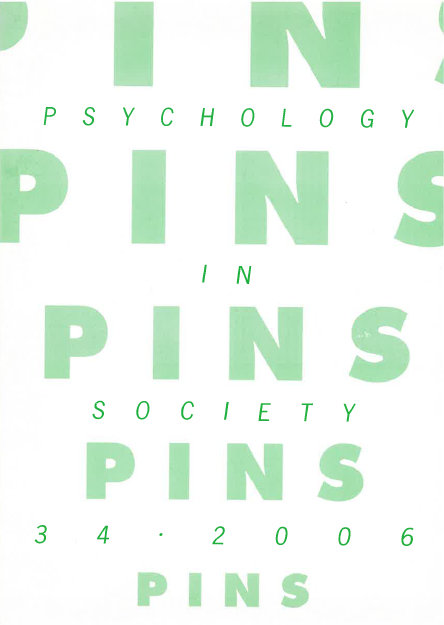THE UNBEARABLE HEAVINESS OF TRAUMA
DOI:
https://doi.org/10.17159//2309-8708/2006/n34a7Abstract
Levy, S and Lemma, A (eds) (2004) The perversion of loss: Psychoanalytic perspectives on trauma. London: Whurr Publishers. ISBN 1 86156 433 3.
xviii + 172 Pages.
The notion of trauma is the stock-in-trade of psychoanalytic explanations of neurosis. It is also the conceptual origin of Freud’s early psychological account of his first female patients’ symptoms of hysteria (cf Breuer & Freud, 1974). As we all recall from classical psychoanalytic theory, trauma (or traumatic events and experiences) produces anxiety around which defences are rallied resulting in the formation of neurosis. Freud’s (1940) view was that all neuroses were the result of infantile traumata, and consequently he had more to say about the early vicissitudes of psychosexual development than the traumas that befall us as adults (with the exception of war neurosis or “shell shock”). And yet there is something extraordinarily tame about the “normal” psychosexual traumata of neurosis compared to the mostly horrific traumatic events discussed in Levy and Lemma’s The perversion of loss. The perversion could as easily apply to the
violation of humanity that people inflict on each other, politically, socially, and interpersonally.
Downloads
Downloads
Published
How to Cite
Issue
Section
License
This journal is an open access journal, and the authors' and journal should be properly acknowledged, when works are cited.
Authors may use the publishers version for teaching purposes, in books, theses, dissertations, conferences and conference papers.
A copy of the authors’ publishers version may also be hosted on the following websites:
- Non-commercial personal homepage or blog.
- Institutional webpage.
- Authors Institutional Repository.
The following notice should accompany such a posting on the website: “This is an electronic version of an article published in PINS, Volume XXX, number XXX, pages XXX–XXX”, DOI. Authors should also supply a hyperlink to the original paper or indicate where the original paper (http://www.journals.ac.za/index.php/pins) may be found.
Authors publishers version, affiliated with the Stellenbosch University will be automatically deposited in the University’s’ Institutional Repository SUNScholar.
Articles as a whole, may not be re-published with another journal.
The copyright of the article(s) lies with the author(s).
The copyright of the journal lies with PINS-psychology in Society.
The following license applies:
Attribution CC BY-NC-ND 4.0 - https://creativecommons.org/licenses/by-nc-nd/4.0/

